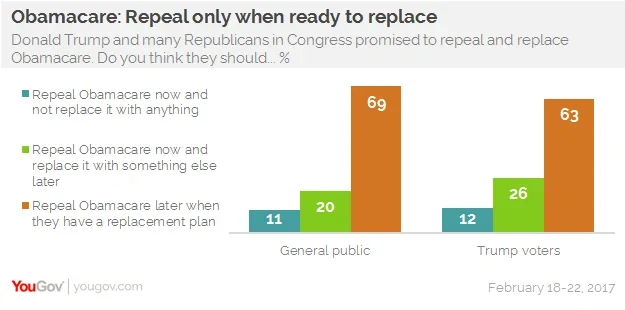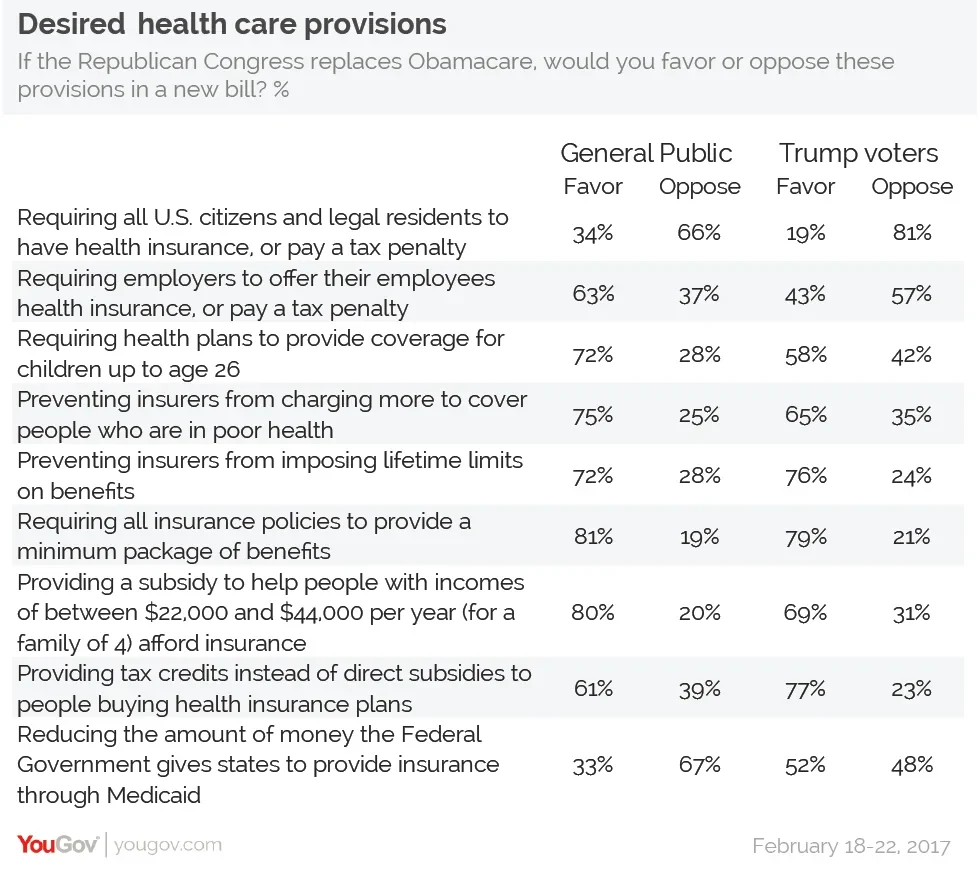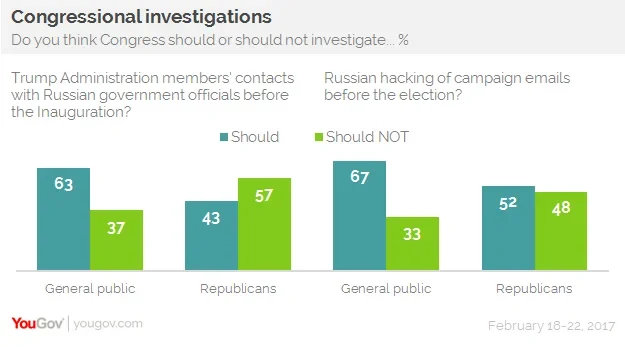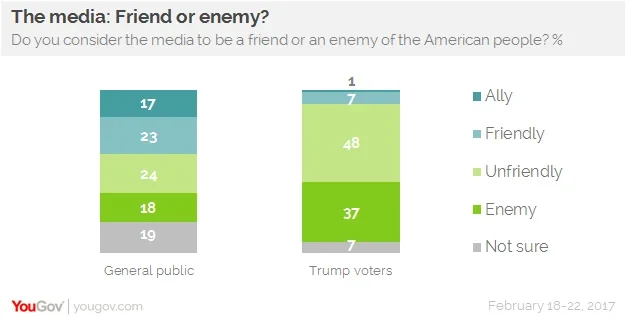And nearly two-thirds of Trump voters want the Affordable Care Act repealed only when there's a plan to replace it
Repealing the Affordable Care Act is something the Trump Administration and the Republicans who control Congress agree on.
The latest Economist/YouGov Poll, however, suggests that the public thinks it needs to be done carefully. Most Americans — and many of Trump’s own supporters — don’t want repeal until there is a replacement in place, and think the replacement should have many of the same components as Obamacare itself.

Only about one in ten want simply to repeal the Affordable Care Act without creating any kind of replacement, and twice that percentage are willing to repeal and wait some time before a replacement is in place. But most Americans want both actions — repealing and replacing — to take place simultaneously. And while many Republicans have pledged this will happen, there is not yet a clear path to that goal.
Americans have little desire to cut back on the number of people covered by any new health care plan. By the wide margin of 73% to 9%, Americans think anyone with health coverage today should be able to be covered in the new system.
When the public is asked about what should be in any replacement health care plan, majorities would like to see many of the same provisions the Affordable Care Act itself required. Eight in ten want government subsidies for those earning between $22,000 and $44,000 a year (this year Obamacare provides subsidies to those with even higher incomes). The same percentage believes there should be a minimum package of benefits. More than seven in ten support having any new plan cover children up to the age of 26, as Obamacare does, and oppose charging more to those in poor health or capping lifetime benefits. Nearly two in three would even support an employer mandate.

While six in ten favor providing tax credits instead of subsidies to help individuals buy health insurance, support for that proposal is strongest among Republicans. Half of Democrats would oppose that change.
The only item from the Obamacare requirements asked about in this poll that most reject is the individual mandate. Two-thirds of the public want to eliminate that part of the ACA.
On nearly all of these proposals, Trump voters and Republicans agree with the overall public. However, those groups give significantly less support to requiring an employer mandate, and more support to cutbacks in federal government Medicaid payments to states.
The GOP-controlled Congress will be doing more than trying to pass an Obamacare replacement plan. Both the Senate and House have begun investigations into Russian hacking during the 2016 campaign. On this, the public is with them, but about half of Republicans disagree. Nearly as many Americans who favor the investigation into Russian hacking also support a Congressional investigation dealing with Trump campaign pre-Inauguration contacts with Russian officials. Republicans disagree.

53% of the public say it’s likely the Trump campaign discussed policy with Russian officials before the January 20 Inauguration, and most say those discussions were inappropriate. Only four in ten Republicans think this, however, and most of them believe those contacts were appropriate.
But the public sees a disconnect when it comes to their view of Russia (most in both parties view Russia as unfriendly or an enemy), and their perception of the President’s view. By more than two to one, more think President Trump sees Russia as a friendly nation, as opposed to unfriendly.
As for one group the President has described as an enemy — the national news media — 18% of all Americans and a third of Trump voters agree with him.

It is somewhat different when Americans are asked about the news media the President attacked specifically in his tweet. 11% say ABC and CBS are the enemy, 13% say that about NBC, 16% about The New York Times, and 19% about CNN. Half of Trump’s voters say CNN is an enemy — the highest percentage of his voters who say that about any specific media organization.
Fox News, which was not mentioned in the tweet, is seen as an enemy by 16% of the US adults. However, those who think this are much more likely to be Democrats than Republicans.








